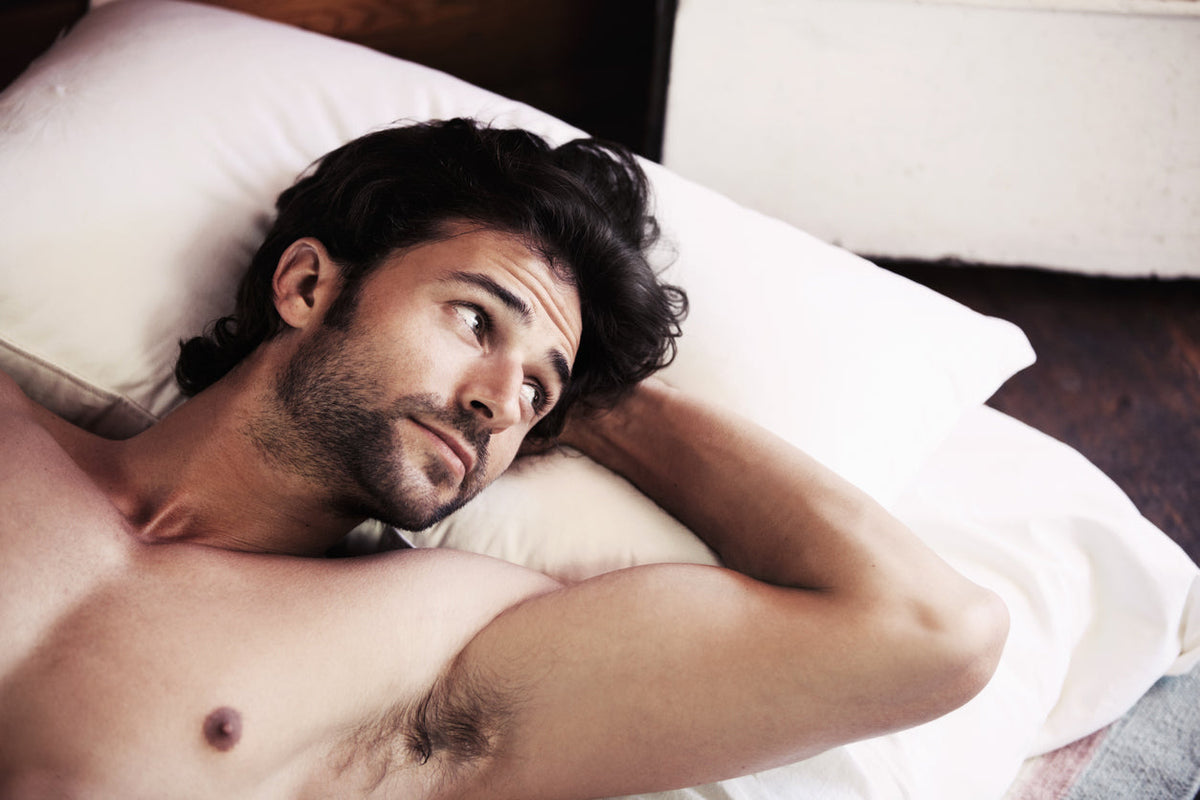
Hey Athletes: Here’s the Best Sleep Hacks for Peak Athletic Performance
|
FREE Shipping over $50 SHOP NOW
|
Sleep is essential for everybody’s wellbeing.
And a good night’s sleep always makes you look and feel great. With smoother skin, shinier hair, brighter eyes and fewer breakouts!
But for elite athletes, who exercise at a high level, quality sleep is critical to their performance too.
Sports medicine professionals and coaching staff have put a lot of effort and research into establishing guidelines and intervention tools for athletes to use to make sure they get the sleep that they need.
And whether you’re competing at a competitive level or not, you can adopt the same approach.
Below we look at their sleep strategies along with some alternative “hacks” that athletes use to improve the quality of their sleep.
Improving sleep quality benefits almost every area of your health – impacting your physical development, emotional regulation, cognitive performance, and general quality of life.
It also enhances athletic performance – increasing stamina and reducing the risk of both injury and illness.
It’s clear that quality sleep is vital for optimizing good health.
More and more evidence shows that improved sleep quality - as well as increased sleep duration - is associated with improved performance and higher rates of competitive success for athletes.
And the negative effects of sleep deprivation cannot be overstated.
Drift away – and wake up refreshed.
With 3 calming nutrients - Melatonin + Vitamin B6 + Passiflora Extract - to support
your natural sleep cycle.
Because it’s so important, many studies have documented the effects of sleep deprivation and sleep extension on athletic performance. Looking at reaction times, accuracy, strength and endurance, and cognitive function.
This 2017 study of Brazilian elite athletes demonstrated that competitive success is undoubtedly related to increased sleep duration and quality.
Studies found that lack of sleep had a negative effect on:
And there are clear negative effects of sleep deprivation on reaction time, accuracy, and vigor. With cognitive functions, such as judgment and decision-making, also suffering.
On the other hand, getting more sleep – or sleep extension – had a positive effect on reaction times, mood, sprint times, tennis serve accuracy, swim turns, kick stroke efficiency, and increased free throw accuracy.
Given all this evidence, most studies still found that athletes often fail to get the recommended amount of sleep, threatening both their performance, their health and competitive success.
It’s undoubtedly for the same reasons as you or I.
Athletes face the same type of obstacles that we do - training and competition schedules, travel, stress, academic or work demands, and overtraining.
In light of this, sports medicine professionals and coaching staff prioritize:
in athletes to improve their performance, and overall health.
And these are all things that you can prioritize too.
Studies of elite athletes implemented several different sleep interventions - including sleep extension and napping, improving sleep hygiene, and post-exercise recovery strategies.
And the evidence suggests that sleep extension (getting more sleep) had the most beneficial effects on performance.
One study looked at the effect of sleep extension on the athletic performance of Stanford University men's varsity basketball team.
They found that with optimal sleep, the players were running faster timed sprints, and their shooting accuracy improved. They also reported improved overall ratings of physical and mental well-being.
Scheduling an early bedtime is all well and good, but sometimes it can be hard to get to sleep.
And while it’s true that exercise helps you to fall asleep quicker you can still improve the quality of your sleep with good sleep hygiene.
These tips can help everybody to experience better quality sleep, not just elite athletes:
How much sleep do I need?
It’s hard to give a straight answer to this – mainly because everybody has different needs.
According to the American Academy of Sleep Medicine, adults require between 7 and 9 h of sleep for optimal performance and health.
But athletes may require more to allow for adequate recovery. So you could consider aiming closer to 9 or 10 h of sleep if you’ve upped your training schedule.
For elite athletes sleep is vital.
With good quality sleep improving overall health as well as athletic performance - including reaction times, accuracy, strength and endurance, and cognitive function.
And studies of elite athletes suggest that sleep extension (getting more sleep) had the most beneficial effects on performance.
To extend your sleep time you can adopt the same strategies:
Start by setting up a good sleep schedule, especially when you’re travelling, improve your time management, reduce stress and improve your sleep hygiene in the same ways recommended for athletes:
This article is for informational purposes only and does not contain medical advice. As always, please contact your physician or qualified healthcare provider with any questions regarding a medical condition.
References
Vitale KC, Owens R, Hopkins SR, Malhotra A. Sleep Hygiene for Optimizing Recovery in Athletes: Review and Recommendations. Int J Sports Med. 2019 Aug;40(8):535-543. doi: 10.1055/a-0905-3103. Epub 2019 Jul 9. PMID: 31288293; PMCID: PMC6988893.
Simpson NS, Gibbs EL, Matheson GO. Optimizing sleep to maximize performance: implications and recommendations for elite athletes. Scand J Med Sci Sports. 2017 Mar;27(3):266-274. doi: 10.1111/sms.12703. Epub 2016 Jul 1. PMID: 27367265.
Mah CD, Mah KE, Kezirian EJ, Dement WC. The effects of sleep extension on the athletic performance of collegiate basketball players. Sleep. 2011 Jul 1;34(7):943-50. doi: 10.5665/SLEEP.1132. PMID: 21731144; PMCID: PMC3119836.
Fullagar HH, Skorski S, Duffield R, Hammes D, Coutts AJ, Meyer T. Sleep and athletic performance: the effects of sleep loss on exercise performance, and physiological and cognitive responses to exercise. Sports Med. 2015 Feb;45(2):161-86. doi: 10.1007/s40279-014-0260-0. PMID: 25315456.


